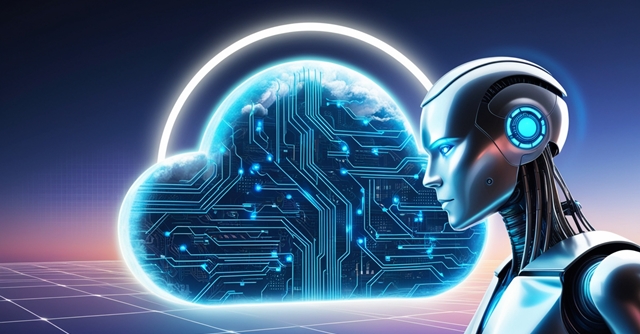
How Cloud and AI will shape India's digital transformation Journey in 2025


In 2024, cloud computing and artificial intelligence (AI) became integral to the digital transformation efforts of Indian enterprises. The adoption of these technologies allowed businesses to streamline operations, foster innovation, and stay competitive in a dynamic market environment.
Moving into 2025, organisations are intensifying their focus on these technologies, with Chief Information Officers (CIOs) and Chief Technology Officers (CTOs) leading initiatives to enhance operational efficiency and drive innovation.
Industry Investment and Growth
Recent investments highlight the growing importance of cloud and AI in India. Microsoft’s announcement of a $3 billion investment to expand its Azure cloud and AI infrastructure in India underlines the nation’s critical role in the global tech landscape. This investment aims to cater to the rising demand for cloud services and AI capabilities across Indian businesses.

According to IDC, the Indian public cloud services market is projected to grow to $25.5 billion by 2028, with a compound annual growth rate (CAGR) of 24.3% over the next three years. This growth is fueled by organisations embracing digital transformation, adopting as-a-service models, and leveraging generative AI.
According to the data collated by the technology sector database SalesEdge, a sister unit of TechCircle, digital spending in FY24 also reveals, cloud computing accounted for ₹760,062 million (33.7% of total digital spending), while AI spending stood at ₹317,085 million (14%). These figures emphasise the critical role of these technologies in enterprise strategies.
CIO and CTO Focus Areas

CIOs and CTOs are prioritising the strategic implementation of cloud and AI technologies to drive business success. Leveraging AI and machine learning to automate repetitive processes has enabled cost savings and allowed employees to focus on more complex, value-added tasks that enhance productivity.
Cloud platforms provide the scalability and flexibility needed to support rapidly evolving business demands, including hybrid and remote work environments. Devroop Dhar, Co-Founder and MD at Primus Partners, emphasised, "Cloud and AI have opened up significant opportunities, but they have also brought certain challenges that require careful planning and strategic approaches to address."
At the same time, a strong focus on boosting cybersecurity frameworks is helping to protect against escalating cyber threats, ensuring data security and compliance with regulatory requirements. These comprehensive strategies are integral to enhancing operational efficiency and resilience.
Emerging Trends in 2025

Several trends are shaping the digital transformation journey in 2025:
AI-Powered Cloud Services: AI integration into cloud platforms is revolutionising operations, boosting efficiency, and enhancing decision-making. Sundar Ramaswamy, Head of AI/Analytics at Happiest Minds Technologies, highlighted its impact, "Cloud-powered AI has automated workflows and improved employee engagement, leading to a 25% efficiency increase across our teams."
Edge Computing: Processing data closer to its source is reducing latency and enabling real-time analytics for Internet of Things (IoT) and other critical applications. Ramprakash Ramamoorthy, Director of AI Research at Zoho Corp, explained, "Edge computing in 2025 will lower costs, reduce latency, and improve efficiency in niche areas like customer engagement, finance, compliance, and logistics."

Hybrid and Multi-Cloud Strategies: Adopting hybrid and multi-cloud environments helps businesses optimise costs, boost performance, and avoid vendor lock-in. Madhusudan Murthy, Senior VP at GlobalLogic, noted, "Migrating to cloud platforms has cut infrastructure costs and improved system reliability. Automation has streamlined operations, allowing teams to focus on high-value tasks." Furthermore, Aabha Gupta, Co-Founder, Ant Mascot, said, “With hybrid work models becoming the norm, AI is bridging physical and virtual workspaces to maintain motivation, collaboration, and engagement.”
Sustainability: Energy-efficient and eco-friendly technologies are becoming a priority for organisations. Daryush Ashjari, CTO at Nutanix, shared his perspective, "As generative AI adoption grows, GPU-powered infrastructure will drive energy consumption to unprecedented levels, significantly challenging sustainability goals."
Conclusion

As Indian enterprises continue their digital transformation journey in 2025, cloud computing and AI remain at the core of their strategies. CIOs and CTOs are focusing on integrating these technologies to boost innovation, security, and efficiency, ensuring their organisations stay competitive in an ever-evolving digital economy.
